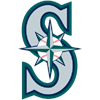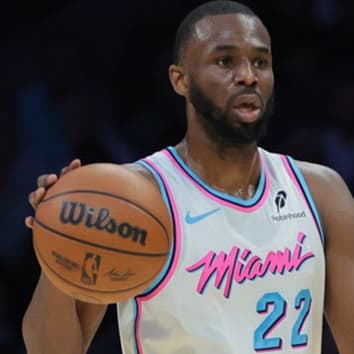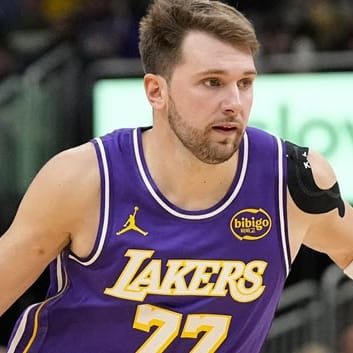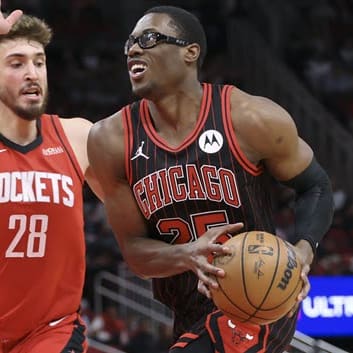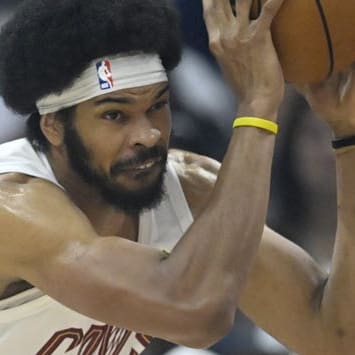In the 2012-13 NBA season, 19 players were suspended by the NBA or their respective teams for a total of 48 games. This coincided with the NBA's increased efforts to clean up the league's perceived "image problem" that has plagued it since the second retirement of Michael Jordan in 1998. No one in the league's upper crust will ever forget Ron Artest (now Metta World Peace) and Stephen Jackson throwing haymakers at fans in the Malice at the Palace in Detroit in 2004 or the Wild West showdown between Gilbert Arenas and Javaris Crittenton in the Wizards' locker room in 2009. Nine players were suspended for a total of 146 games after the Pistons' and Pacers' brawl, and Arenas and Crittenton were suspended for a total of 88 games for their gun play. As a result, fantasy owners must now be aware of the NBA's stiff upper lip when it comes to its suspension policy for a multitude of transgressions.
While it's nearly impossible to stand here and predict whether another Malice at the Palace will happen again, what this column hopes to do is shed light on are the reasons players can be suspended under league rules and the collective bargaining agreement (CBA), as well as identify which players may be at the highest risk for missing games in the upcoming 2013-14 NBA season.
CURRENT SUSPENSIONS
Terrel Harris, Portland Trail Blazers
J.R. Smith, New York Knicks
Under the Anti-Drug Program outlined in Article XXXIII of the CBA, players can be randomly tested for "prohibited substances," including performance-enhancing drugs (PEDs) and recreational drugs such as marijuana. In the case of PEDs, a first positive test will result in a 20-game suspension; a second positive test will incur a 45-game suspension; and a third positive test will result in a lifetime ban. Last season, Hedo Turkoglu made news as the first NBA player to be handed a 20-game suspension for a positive test. Turkoglu proclaimed his innocence and served his suspension, but it appears that Turkoglu will be spending this coming season playing in Europe with numerous reports surfacing of a negotiated buyout with the Magic merely being a matter of time.
Smith and Harris, however, will each be suspended for the first five games of the 2013 season for a reported violation of the league's anti-drug policy. Harris may be a fantasy afterthought but Smith is a key component to Knicks' championship hopes. Under the terms of the CBA, players who test positive for marijuana use suffer a different set of discipline from those testing positive for PEDs or even "hard drugs," such as cocaine. Under the CBA's marijuana policy, a player is not suspended until his third positive test, which results in an automatic five-game suspension. Any subsequent violation will result in a suspension that is five games longer than the player's immediately-preceding suspension. Although privacy rules forbid the NBA releasing its drug-testing results, the five-game suspension is a telltale sign of a third positive test, and both Smith and Harris must be careful to avoid a fourth violation, or they will face an additional 10 games rooted to the bench.
OFF-COURT CONDUCT
Conduct Detrimental to the Team/League
Under the CBA, the NBA commissioner has the power to hand down disciplinary actions (either suspension or fines less than $50,000) on players for on-court incidents; conduct that does not conform to standards of fair play; conduct that does not comply to federal or state laws; and conduct that is detrimental to the game of basketball or the league. Additionally, the standard NBA player's contract contains a "Conduct" clause in which the player agrees, "not to do anything that is materially detrimental or materially prejudicial to the best interests of the Team or the League." This clause allows a team to terminate a player's contract if the player's conduct and actions do not comport with the team's material interests and standards of "honesty, citizenship, and sportsmanship." Teams have also used this clause to impose punishment for player transgressions. Generally, if a player engages in nebulous "conduct detrimental to the team," he can be fined or suspended at the team's discretion, though penalties imposed by a team may be appealed to the league's grievance arbitrator if the financial impact (from a fine and/or lost salary due to a suspension) is $50,000 or greater.
A quick review of suspensions for such detrimental conduct shows that most result in a mere one or two game leave of absence for the guilty player. Last season alone, for example, DeMarcus Cousins was suspended for two games by the NBA for a post-game verbal confrontation with Spurs' color commentator Sean Elliott, and a month later, he received an "indefinite" suspension (which would only span one game) from the Kings "for unprofessional behavior and conduct detrimental to the team." Meanwhile, Dallas suspended and subsequently waived troubled guard Delonte West for his conduct during the preseason. Previously, the NBA suspended West for the first 10 games of the 2010-11 season after he pled guilty to weapons charges. A number of other players were suspended for various detrimental conduct or violations of team policy during the 2012-13 season – Josh Smith, Samuel Dalembert, Carmelo Anthony, Royce White, and Rajon Rondo - and each could potentially face stiffer penalties for further transgressions as the league and their respective teams grow increasingly wary of indecorous antics.
Biogenesis
The current climate of professional sports is fogged by performance-enhancing drugs. It's a constant concern in football and a huge problem in baseball. Yet, the NBA has avoided falling into PED Hell, as it has remained fairly immune from the stigma of PEDs. Still, it's somewhat startling that the NBA didn't take the Biogenesis scandal more seriously. Incoming commissioner Adam Silver dismissed any link to Biogenesis, despite reports indicating that NBA players were on the same list that doomed Alex Rodriguez, Ryan Braun and many a fantasy baseball team.
One reason why the league can breathe a sigh of relief is a broader drug policy than that which exists in baseball. As noted above, the NBA can swiftly suspend players for positive tests under its random drug testing program. But the league's anti-drug program has provisions that don't require a failed test to initiate the discipline process. Beyond the six random, unannounced tests during each season and offseason to which each player is subject, tests can be administered at any time based on "reasonable cause," which allows for testing if the "Players Association or NBA has information that gives it reasonable cause to believe that a player is engaged in the use, possession, or distribution of a Prohibited Substance." Where the league has reason to suspect illicit drug use from one of its players - such as a name that may appear on the Biogenesis documents - the league can target that player for additional testing.
Also, the policy allows for evidence coming from outside sources, such as Biogenesis' trail of texts and electronic messages. A summary of the NBA's program includes the following:
If the NBA obtains evidence of a player's use, possession or distribution of a Prohibited Substance, it can take that evidence to a neutral arbitrator. If the arbitrator finds that the player has used or possessed a Drug of Abuse, or has distributed any Prohibited Substance, he will be dismissed and disqualified from the NBA. If the arbitrator finds that the player has used or possessed Marijuana or a PED, such a finding is considered a violation under the Program and the player will be subject to the same penalties imposed for a positive drug test.
Though nothing currently exists beyond wild speculation, if any NBA players appear on the Biogenesis clientele lists, or lists from other clinics, it's imperative that fantasy owners have their ears tuned to the news given the NBA's expansive testing policies and strict punishments. As we saw with Ryan Braun in fantasy baseball this season, it might be best to be cautious in drafting players who have allegations thrown at them.
ON-COURT CONDUCT
Technical Fouls
In addition to suspensions related to detrimental off-court conduct, the NBA has recently cracked down on perceived problems within the four corners of the court; including those associated with technical fouls and rough or dangerous play. During the 2010-11 NBA season, there were 883 technical fouls called. Most of those fouls came from players scuffling with one another or disputes with a referee over what was thought to be a bad call. Not only are 883 technical fouls a huge amount, but the top 10 offenders were household names. As a result, the league mandated a system of fines and suspensions for repeat offenders. Players are now suspended one game upon being issued their 16th technical foul of the season. And once a player reaches 16, each two additional technical fouls (18, 20, 22, etc.) result in a one-game suspension. Last season, Cousins, unsurprisingly, was the only player to receive a suspension after accumulating 17 technical fouls. However, another nine players flirted with the suspension-imposing limit, including Russell Westbrook (15 techs), Larry Sanders (14), Blake Griffin (14), Anthony (14), J.R. Smith (13), Kobe Bryant (13), Kendrick Perkins (12), Jermaine O'Neal (12) and even the supposedly mild-manneredKevin Durant (12).
Flagrant Fouls
The NBA is unquestionably a global league populated by recognizable stars. As such, the league has recently engaged in a concerted effort to curb perceived dangerous or rough play to protect its stars and improve the aesthetics of the product it markets to its fans. While scoring is actually down from the golden age of both hard fouls and offense, the twenty-first century game is defined by penetration, athletic moves around the basket, and the artistry that results from Westbrook, Derrick Rose or LeBron James attacking the rim. A league of hard fouls, or a strictly enforced "no layup rule," would potentially undermine the beauty of the contemporary game. As a result, the NBA implemented its controversial suspension policy tied to flagrant fouls.
The NBA defines a Flagrant Foul 1 as "unnecessary contact," while a Flagrant Foul 2 is "unnecessary and excessive contact." The NBA league office reviews all flagrant fouls, and during the review process, the league office can uphold the original call, rescind the flagrant foul, reclassify the flagrant foul, and fine and/or suspend the player for the foul. Any player who commits two Flagrant "1" Fouls in the same game will be automatically ejected from that game. A number of players were suspended, usually only for one game, after the league reviewed and determined their on-court actions to be excessive or dangerous.
In addition, in order to address the problem of repeat offenders, the league implemented a point system for both the regular season and playoffs. In the regular season, a player will receive one point for Flagrant 1 fouls and two points for Flagrant 2 fouls. If the player's season total exceeds 5 points, he will receive an automatic suspension following the game in which his point total exceeds 5 points and for each additional flagrant foul committed during that season, as follows:
- Player at 4 points commits a Flagrant 2 foul: automatic 1 game suspension
- Player at 5 or 6 points commits a Flagrant 1 foul: automatic 1 game suspension
- Player at 5 or 6 points commits a Flagrant 2 foul: automatic 2 game suspension
- Player at 7 points or more commits a Flagrant 1 or 2 foul: automatic 2 game suspension
Last season, four players – Matt Barnes, DeMarcus Cousins (again), Dwight Howard and Metta World Peace - finished the regular season with five total points, one point away from incurring an automatic suspension, and one player (Serge Ibaka) was also a mere Flagrant 2 from being sat down.
CONCLUSION
Obviously predicting suspensions is an imperfect science. Further, while many of these potential suspensions, particularly the automatic ones for technical and flagrant fouls, are not necessarily ones to be concerned about early in the season, an ill-timed suspension could be crippling for a fantasy team late in the season. As a result, recognizing trends as it relates to potentially problematic behavior can be a critical exercise for fantasy owners even early in the season. For example, in drafting between two players of equal value, it may be wise for a risk-adverse owner to take into account potential missed games as a sort of tiebreaker, particularly where one of the players in question has a history of suspension or near suspension. Nothing is ever guaranteed in fantasy, but it never hurts to be armed with as much information as possible.















